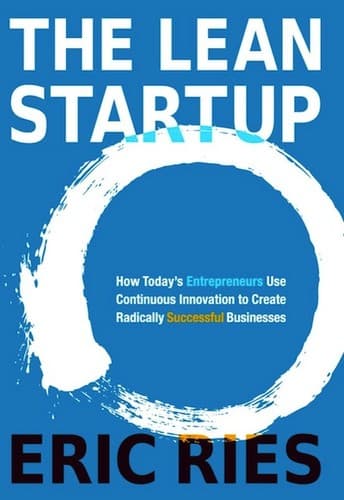Key Points:
- Build-Measure-Learn: The core feedback loop of the Lean Startup methodology emphasizes the cycle of creating a product, measuring its performance, and learning from the results to improve continuously.
- Minimum Viable Product (MVP): Introduces the concept of launching a product with just enough features to gather validated learning about the customers.
- Pivot or Persevere: Focuses on the decision-making process of whether to pivot (change the direction of the product) or persevere (keep improving the current product).
- Innovation Accounting: A new way to measure the progress of startups, helping them to focus on the right metrics.
- Actionable Metrics: Stresses the importance of metrics that can guide decision-making, as opposed to vanity metrics that only look good on paper.
Summary:
Eric Ries’ “The Lean Startup” revolutionizes the way startups are built and grown by applying lean manufacturing principles to the entrepreneurial process. The book introduces the Build-Measure-Learn feedback loop, which encourages startups to create minimal versions of their products (Minimum Viable Products) to quickly gather feedback and learn what works. This iterative process allows for rapid adaptation and reduces wasted effort and resources.
Ries also discusses the importance of making critical decisions on whether to pivot or persevere based on data-driven insights, known as innovation accounting. This approach ensures that startups focus on metrics that matter and drive real progress.
The book is filled with practical advice and real-world examples, making it a valuable guide for entrepreneurs and managers. “The Lean Startup” is praised for its actionable insights and has become essential reading for anyone involved in the startup ecosystem The Lean Startup by Eric Ries - Five Books Expert Reviews Book Review: The Lean Startup by Eric Ries - Bizness Professionals The Lean Startup.
It’s kind of funny that Eric Ries hasn’t shipped all that much since he wrote about this. His work on Long Term Stock Exchange was diametrically opposed to these notions.




